| |

|
Myriam Armant view abstract | back to agenda
Director, TransLab, Boston Children’s Hospital
Myriam Armant, PhD is the director of the TransLab at Boston Children’s Hospital (BCH), which is an innovative clinical and translational platform that bridges scientific discovery and clinical practice. Dr. Armant has over a decade of experience and expertise in cell and gene therapy manufacturing process and product development. Under her leadership, the TransLab has supported multiple cell therapy trials by delivering validated standard operating procedures (SOPs), product-specific characterization and acceptance criteria to ensure product safety, identity, purity and strength. Her lab is also in charge of technology transfer to GMP-cell processing facilities and offers regulatory support generating the Chemistry, Manufacturing, and Controls (CMC) section of the Investigational New Drug (IND) Application. The TransLab has enabled a diverse portfolio of phase I/II and III clinical trials covering cancer immunotherapy, regenerative medicine and gene therapy. Ten different clinical trials (both single and multicenter, academic and industry-sponsored) have used manufacturing processes developed by the TransLab. Over the past five years, she has contributed to establishing a gene therapy program at BCH. More recently, she has extended the role of the TransLab to support correlative studies and patient monitoring on clinical trials, by offering a comprehensive battery of cellular and molecular assays. |
 |
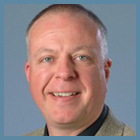
|
Chris Ballas view abstract | back to agenda
Associate Director, Gene Mediated Cell Therapies, WuXi Apptec
Over 20 years’ experience with cell lines, primary tissue cells, stem cell (hematopoietic, mesenchymal, cancer) and gene therapy (DNA, retroviral, and lentiviral vectors). Managed viral vector production and testing core cGMP and cGLP facilities serving academic and corporate clients for research and clinical material needs. Served as faculty at Indiana University School of Medicine, Division of Hematology/Oncology, conducting research on stem cell biology and gene therapy. Consulted for companies involved in stem cell and gene therapy programs. Managed cell therapy clinical trials (feasibility through phase III pivotal studies). Wrote CMC sections and supported various regulatory filings, including FDA, Recombinant DNA Advisory Committee, and EMEA submissions. Developed patent pending ultrahigh throughput microinjection technology. Provides program management of viral vector production and gene therapy projects. PhD in Cellular and Molecular Pathology. |
 |

|
Dominic Clarke view abstract | back to agenda
Global Product Manager for Cellular Therapy and Bioprocessing, Charter Medical
Dominic Clarke, PhD, has 15+ years of experience developing enabling solutions for cell therapy and bioprocessing applications. Dr. Clarke is the Global Product Manager for Charter Medical’s cell therapy and bioprocessing disposables portfolio focused on collaborating with Cell Therapy and Biopharma end-users to develop flexible closed-system solutions for early and late stage production. Previously, Dominic worked as the Director of Research and Development at BioLife Solutions, developing novel storage media and methods to support extended stability of cells and tissues.
Dr. Clarke has authored numerous papers detailing closed-system strategies and extending cell and tissue stability and has been the Principal Investigator on multiple NIH SBIR awarded grants. He received his PhD in Cell and Molecular Biology from the State University of New York at Binghamton and performed his post-doctoral studies in Cellular and Developmental Biology at Syracuse University Upstate Medical Center. |
 |
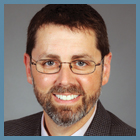
|
John Duguid view abstract | back to agenda
Director, Process Development, Vericel Corporation
John Duguid is Director, Process Development at Vericel Corporation in Cambridge, MA. Vericel Corporation acquired Genzyme’s Cell Therapy and Regenerative Medicine (CTRM) business in 2014. As a Principal Scientist, Mr. Duguid was responsible for developing, validating, and transferring molecular biology assays for rapid microbiology and cell differentiation applications, managing complex projects to implement process changes, and using statistical process control tools to implement process analytical technology for cell therapy products. He has been with CTRM since 1995.
Before taking on his current role in R&D, Mr. Duguid managed quality control cell therapy operations at Genzyme for over 10 years, where he designed and implemented a comprehensive cGMP compliant raw material program controlling 300 400 parts and participated in 16 vendor audits, directing 4 as lead auditor. He also represented QC during 10 FDA inspections and numerous audits from international regulatory authorities as a subject matter expert in material inspection and release, biopsy accessioning, endotoxin testing, Mycoplasma testing, analytical methods, flow cytometry, laboratory failure investigations, assay validation, and data management.
Mr. Duguid received his Bachelor of Science degree in chemistry in 1986 from the University of Michigan in Ann Arbor, MI and taught analytical chemistry in 2000 at Northeastern University in Boston, MA. Prior to joining Genzyme, he worked in analytical research at Abbott Laboratories Pharmaceutical Products Division in North Chicago, IL and then as a scientific consultant for Massachusetts biotechnology companies at Arthur D. Little in Cambridge, MA. Involved with the pharmaceutical and biotechnology industries for over 20 years, Mr. Duguid has technical and management experience spanning all phases of the product lifecycle from early research and development through cGMP quality operations. |
 |
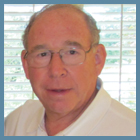
|
Gary C. du Moulin view abstract | back to agenda | back to panel
Associate Professor of Drug Regulatory Affairs, Massachusetts College of Pharmacy and Health Sciences University
Gary C. du Moulin, PhD, MPH recently retired as Senior Director of Quality Aseptic Control for Genzyme (A Sanofi Company) where he participated in the development and execution of robust quality systems for Genzyme’s products including biologics and cell based therapies. Dr. du Moulin joined Genzyme in 1995 after working for six years developing quality systems for cellular therapies for the treatment of renal cell carcinoma. Prior to his industrial experience, he spent 15 years on the faculty of Harvard Medical School in the Department of Anesthesia at Beth Israel Hospital. He has more than 150 publications in the areas of microbiology, epidemiology, and the regulation and quality control of living cells as a therapeutic modality. Dr. du Moulin received his BS in 1969 from Norwich University, an MS degree from Northeastern University, and MPH and PhD degrees from Boston University. Dr. du Moulin has served on U.S. Pharmacopoeia’s General Chapters Biological Analysis and Gene Therapy, Cell Therapy, and Tissue Engineering Expert Committees and chaired the ad hoc advisory panel for fetal bovine serum. He currently serves on the Modern Microbiological Methods Expert Panel. He serves on the editorial board of Regenerative Medicine and is RAC certified and past Chairman of the Editorial Board of the Regulatory Affairs Professionals Society Magazine, RAPS Focus and was appointed to the Grants Review Working Group of the California Institute for Regenerative Medicine. He is retired from the U.S. Army Reserve at the rank of Colonel after 38 years of service and currently teaches at the Massachusetts College of Pharmacy and Health Sciences University in Boston as Adjunct Associate Professor of Drug Regulatory Affairs. |
 |
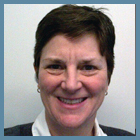
|
Denise Gavin view abstract | back to agenda
Chief, Gene Therapy Branch, Division of Cell and Gene Therapy, United States Food and Drug Administration
Denise Kay Gavin received her PhD in Immunology/Microbiology/Molecular Virology from Rush University Medical College in Chicago, IL. She joined the FDA following Post-Doctoral Fellowships in molecular virology at the University of NC, Chapel Hill Gene Therapy Center, under the mentorship of Dr. Jude Samulski and at the NIH NINDS, Laboratory of Molecular Biology under the Director of Ronald McKay. Dr. Gavin is currently the Gene Therapy Branch Chief, in the Division of Cell and Gene Therapy in the Office of Cellular, Tissue and Gene Therapies (OCTGT) at the FDA’s Center for Biologics Evaluation and Research (CBER). The Gene Therapy Branch is responsible for evaluating the chemistry, manufacturing, and controls (CMC) information submitted in support of gene therapy product regulatory submissions. Dr. Gavin is the FDA representative to the NIH Recombinant DNA Advisory Committee (RAC) and to the International Pharmaceutical Regulators Forum for Gene Therapy Working Group. She is a Co-Chair of the CASSS Bioassay Workshop Steering Committee, which held an entire session at last year’s meeting on Challenges to developing potency assays for Cell and Gene therapy products. |
 |
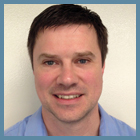
|
Brian Hawkins view abstract | back to agenda
Senior Application Scientist, BioLife Solutions
Brian Hawkins is a Senior Application Scientist at BioLife Solutions. BioLife Solutions develops, manufactures and markets hypothermic storage and cryopreservation solutions and smart shipping containers connected to a cloud hosted cold chain management app to improve the quality of delivery logistics for cells, tissues, and organs. Dr. Hawkins received his PhD in Molecular Cell Biology and Biotechnology from Virginia Tech and completed his postdoctoral training at the University of Pennsylvania, where he investigated how alterations in metabolism influence the development of human disease and ultimately death. Prior to joining BioLife in 2014, Brian was an assistant professor and founding member of the Mitochondria and Metabolism Center in the University of Washington School of Medicine. He remains an affiliate assistant professor at the University of Washington and further serves as the Treasurer and a Founding Member of the Board of Directors of the Complex Biological Systems Alliance. |
 |

|
Eileen Higham view abstract | back to agenda
Associate Director/Product Development Team Leader - Adoptive Cellular Therapy, MedImmune
Dr. Eileen Higham currently works as Associate Director / Product Development Team Leader - Adoptive Cellular Therapy at MedImmune, with joint appointments in Biopharmaceutical Development (BPD) and the Oncology Innovative Medicines Unit (iMED). As a strategic leader in the Oncology iMED, she is responsible for oncologic applications of ACT and integrating ACT into the broader context of the MedImmune/AstraZeneca Oncology portfolio. In this context, she leads a cross-functional team consisting of Research, BPD, Translational, Clinical, Commercial, Regulatory, Finance and Partnering & Strategy to align deliverables across functions. As a scientific leader in BPD, she leads a cross-functional process and analytical team to develop next generation platforms to enable clinical and commercial manufacturing of engineered T cell therapies. This includes identifying, developing and implementing emerging technologies to rapidly increase product and process understanding, while also leveraging these learnings to progress next generation platforms. Previously, as a Senior Scientist in BPD at MedImmune, Dr. Higham led a team to develop new technologies, processes and engineered parental cell lines to accelerate the generation of high-yielding, stable mammalian clones expressing therapeutic proteins for clinical and commercial production. Dr. Higham received a Bachelor of Science in Engineering in chemical engineering from Princeton University and a Doctorate in biological engineering from the Massachusetts Institute of Technology. |
 |

|
Joseph Hughes view abstract | back to agenda
Vice President, Technology Development and Chief Scientist, WuXi AppTec
Dr. Hughes earned his PhD in Microbiology from Northwestern University. Previous work included development work at Merck on vaccines and antivirals, and the University of Pennsylvania on gene therapy programs. He has worked in the contract testing and manufacturing business for the past 16 years, and has experience with numerous programs for cell and gene therapy. Presently as VP for Technology Development and Chief Scientist for the US sites of WuXi AppTec, he is involved with bringing in new technologies for analytical and biosafety testing services, establishing custom cell and viral assays, and supporting process improvements in vector production. |
 |
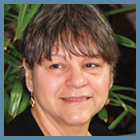
|
Rosemarie Hunziker view abstract | back to agenda
Program Director, Tissue Engineering/Regenerative Medicine,Biomaterials and Implantable Medical Devices, National Institutes of Health / National Institute of Biomedical Imaging and Bioengineering
Rosemarie Hunziker, PhD is the Director of the Tissue Engineering/Regenerative Medicine and Biomaterials Programs at the National Institute of Biomedical Imaging and Bioengineering (NIBIB) within the National Institutes of Health (NIH) in the US Department of Health and Human Services (DHHS). In that capacity she has programmatic oversight of discovery and applied research grants. Dr. Hunziker brings a diverse background to this broad sphere of research, including experience in microbiology, immunogenetics and immunochemistry, developmental biology, animal husbandry, molecular biology, stem cell technologies, tissue engineering (most recently in the “tissue chips” programs) and regenerative medicine, biomaterials, and technology transfer. Rosemarie is committed to nurturing discovery science and realizing the practical benefits of the exciting developments at the forefront of cell-based tools and therapies. |
 |
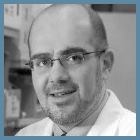
|
Sadik Kassim view abstract | back to agenda
Associate Director, Cell & Gene Therapies Unit, Novartis
Sadik Kassim joined Novartis as an Associate Director and Head of Analytics for the Cell and Gene Therapies unit in Cambridge. Sadik has extensive experience in analytic sciences and cell and gene therapies, including his most recent position as a Research Biologist and Director of Analytics at the Surgery Branch of the National Cancer Institute, National Institutes of Health. While in this position he participated in the manufacture of CD19 CAR genetically modified T cell therapy products for a total of 27 stage IV lymphoma and leukemia patients and helped to develop the commercial manufacturing procedure currently used by Kite Pharma for the production of autologous CD19 CAR genetically modified T cells. He was also responsible for directing all flow cytometry related clinical and research projects in the T cell immunotherapy production facility, including clinical grade sorting of tumor specific T cells for patient administration, polychromatic flow cytometric analysis of patient samples for lot release and research evaluation, and mentoring of clinical research fellows. Prior to his position in the Surgery Branch, Sadik held a position at Johnson and Johnson’s Immunology Discovery unit and performed a post-doctoral fellowship at the Gene Therapy Program of the University of Pennsylvania School of Medicine. |
 |

|
Stephen Kennedy view abstract | back to agenda
Chief Technology Officer, Histogenics Corporation
Stephen Kennedy is Chief Technology Officer at Histogenics Corporation, a Regenerative Medicine Company based in Waltham, MA. As CTO, he is responsible for process research, technology development and transfer, clinical manufacturing and the development of commercial manufacturing operations. Steve has more than 30 years of industrial experience in cGMP biological manufacturing and process development, including 18 years at Genzyme Corporation. Earlier in his career, Steve developed process and manufacturing technology at Genencor, a leading industrial biotechnology company which is now part of DuPont. He also served as Executive Director of the Novartis/MIT Center for Continuous Manufacturing at MIT and has participated in the Center for Biomedical Innovation (CBI) for a number of years. Mr. Kennedy has a BS in Chemical Engineering from the University of Michigan, an MS ChE from the University of Rochester and an MBA from Boston University. |
 |
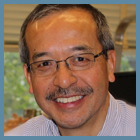
|
James C. Leung back to agenda
Senior Research Fellow, Center for Biomedical Innovation, MIT
Dr. Leung is a Senior Research Fellow at the MIT Center for Biomedical Innovation (CBI). He serves as the lead investigator for the Consortium on Adventitious Agent Contamination in Biomanufacturing (CAACB) and the key advisor to the Biomanufacturing (BioMAN) program. He participates in biotechnology education by contributing to the design and development of biotechnology-related courses and serving as a lecturer in some of these courses at MIT and Northeastern University. He maintains a strong connection to industrial practices by serving as a consultant/advisor to pharmaceutical & biotechnology companies and other research organizations. Before his current roles, Dr. Leung worked in the biotechnology industry mainly in the areas of process development, manufacturing and product development of recombinant biotherapeutics. He has held full time positions at Genentech, Inc., Repligen Corp. and Ipsen. Dr. Leung received a BSc degree from the Chemical Engineering Department at MIT. For graduate studies, he received a MSc degree and a PhD degree in Biochemical Engineering from MIT. |
 |

|
Bruce Levine view abstract | back to agenda
Barbara and Edward Netter Professor in Cancer Gene Therapy, University of Pennsylvania
Dr. Bruce Levine is the Barbara and Edward Netter Professor in Cancer Gene Therapy in the Department of Pathology and Laboratory Medicine at the University of Pennsylvania. He is the Director of the Clinical Cell and Vaccine Production Facility (CVPF) at the Abramson Cancer Center and Perelman School of Medicine. He is an alumnus of the University of Pennsylvania and received his PhD in Immunology and Infectious Diseases from the Johns Hopkins University. The CVPF enables the translation and development of novel cell and gene therapies through validation, manufacture, and testing in single center and multi-center clinical trials in hematologic malignancies, solid tumors, HIV infection, and genetic disease. Twenty clean rooms and associated Quality Control laboratories staffed by 60 clinical laboratory scientists and regulatory professionals support the mission. Since inception, Dr. Levine and the CVPF have supported >30 FDA Investigational New Drug Applications at Penn and external institutions. Several CVPF trials have been first-in-human trials, including the first use of a lentiviral vector, the first infusions of zinc finger nuclease genome-modified cells, and the first use of lentivirally-modified cells to treat cancer. Dr. Levine has overseen the production, testing and release of 2300 cellular products administered to >850 patients in clinical trials since 1996. Through these technologies, personalized and enhanced immunity has been engineered. T lymphocytes from HIV+ subjects have been rendered resistant to HIV infection and reinfused. T lymphocytes from cancer patients have been redirected with chimeric antigen receptors to hunt and destroy their malignancies, an investigational therapy that recently received Breakthrough Designation from the FDA and is currently in commercial development. Dr. Levine is co-inventor on 13 issued US patents. He has published 120 articles, book chapters and reviews in journals including the New England Journal of Medicine, Nature, Science, Science Translational Medicine, Proceedings of the National Academy of Sciences USA and Scientific American. Dr. Levine has been interviewed by national and international media including the New York Times, Wall Street Journal, Business Week, Forbes, NPR, the BBC and others for work in the field of cell and gene therapy. |
 |
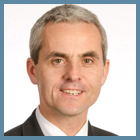
|
Bill Lundberg view abstract | back to agenda
Chief Scientific Officer, CRISPR Therapeutics
Dr. Bill Lundberg has extensive experience across all aspects and phases of drug development in both academic and industry settings. He was previously Vice President and Head of Translational Medicine at Alexion Pharmaceuticals, where he was responsible for all R&D from discovery to clinical proof-of-concept. Before that, Bill held senior positions at Taligen Therapeutics, Antisoma, Xanthus (acquired by Antisoma), Wyeth (now Pfizer) and Genzyme, overseeing the development of diverse portfolios.
Bill received his SB in biology from the Massachusetts Institute of Technology (MIT), MD from Stanford Medical School and MBA from the University of Massachusetts Amherst. As a post-doctoral fellow he studied at the Whitehead Institute at MIT, and trained in internal medicine and oncology at Brigham and Women’s Hospital and Dana-Farber Cancer Institute. |
 |
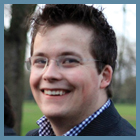
|
Mark McCall view abstract | back to agenda
Lecturer, Loughborough University
Mark McCall is a newly appointed Lecturer in Biological Manufacturing at Loughborough University. His research addresses the prediction and reduction of cell therapy cost of goods and uses this to develop innovative biological manufacturing technology. |
 |
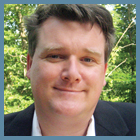
|
Knut Niss view abstract | back to agenda
CMC Team Director, Pharmaceuticals Operations & Technology, Biogen
Dr. Niss completed his doctoral work at the Max-Delbrueck Center in Berlin, Germany working on developmental pathways involved in leukemic cell transformation. He holds a PhD in molecular biology and a master's degree in biology. Following his doctorate work Dr. Niss performed his postdoctoral studies at Children's Hospital and the Dana Farber Cancer Institute in Boston. He analyzed genes involved in hematopoietic stem cell maintenance and differentiation. Following his postdoctoral work, Dr. Niss joined Pfizer's Immunology group first in Connecticut and later in St. Louis to serve as a team leader for hematopoiesis. In this role, he oversaw the implementation of various small molecule and biologics programs into Pfizer's preclinical pipeline. Dr. Niss was then appointed as the research team leader for adult stem cells in Pfizer's Regenerative Medicine unit in Cambridge, MA, responsible for managing research activities to support clinical programs with adult stem cells. Dr. Niss moved his career in 2011 to EMD Millipore as a Senior R&D program manager for the Stem Cell Initiative where he led the efforts on large scale stem cell expansion in bioreactors. In 2013, Dr. Niss transitioned to Novartis Pharmaceuticals in Morris Plains, NJ where he oversaw the implementation of a CART process as well as the TechTransfer activities to various sites. Most recently, Dr. Niss joined Biogen as a CMC Team Director. In this role he is responsible for all CMC activities in the cell therapy space. |
 |
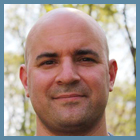
|
Michael Paglia view abstract | back to agenda | back to panel
Senior Director of Technical Operations, bluebird bio
Michael Paglia is the Sr. Director of Technical Operations and head of the Cellular Process Development and Manufacturing Operations group at bluebird bio. Michael and his group are responsible for the development, scale-up, characterization, technology transfer and manufacturing of the autologous hematopoietic stem cell and CAR T cell manufacturing processes. Michael joined bluebird bio in 2011 and has directed the successful completion of process transfers and comparability programs in support of ongoing clinical studies. |
 |

|
Anne Plant view abstract | back to agenda | back to panel
Chief of the Biosystems and Biomaterials Division, and Director of Biological Programs, National Institute of Standards and Technology
Anne Plant received a PhD in biochemistry from Baylor College of Medicine and has been engaged in research in biophysics, predictive models, and quantitative methods for cell biology. She serves as Chief of the Biosystems and Biomaterials Division at NIST as well as Director of Biological Programs for the Material Measurement Laboratory. She has worked at the White House Office of Science and Technology Policy, and is an AIMBE Fellow. NIST is a multidisciplinary organization that is part of the Department of Commerce and is charged with developing measurement technologies and standards that support the success of industry. The Biosystems and Biomaterials Division in collaboration with other scientists at NIST works with the community on genomic, imaging, and other methodologies and benchmarking methods that allow rigorous quantification of single cells and cell populations. |
 |
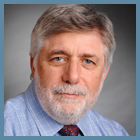
|
Jerome Ritz view abstract | back to agenda
Executive Director, Connell O’Reilly Cell Manipulation Core Facility, Dana-Farber Cancer Institute, Brigham and Women’s Hospital
A graduate of Northwestern University in Evanston Illinois, Dr. Ritz received his MD from Chicago Medical School in 1972, followed by a residency in Internal Medicine at the University of Wisconsin Hospital, Madison. Dr. Ritz subsequently completed a clinical fellowship in Hematology and Oncology at Beth Israel Hospital and a research fellowship in Tumor Immunology at the Dana-Farber Cancer Institute in Boston. He joined the faculty of the Dana-Farber Cancer Institute and Brigham and Women’s Hospital in 1980. Dr. Ritz was a Scholar of the Leukemia Society of America and a recipient of the Society’s Stohlman Scholar Award. He is currently Professor of Medicine at the Dana-Farber Cancer Institute, Brigham and Women’s Hospital and Harvard Medical School.
Dr. Ritz has been a successful laboratory and translational scientist for over 35 years. His major interests have been in cancer immunology and hematopoietic stem cell transplantation. Recent studies in his laboratory have focused on immune reconstitution in patients undergoing hematopoietic stem cell transplantation. In this setting, donor immune cells play a critical role in the recognition and elimination of residual leukemia cells (graft versus leukemia – GVL) but immunologic targeting of normal recipient cells also leads to graft versus host disease (GVHD) and damage to normal tissues. Studies of immune reconstitution have demonstrated that donor B cells and regulatory T cells play important roles in the development of GVL and GVHD and the establishment of immune tolerance after stem cell transplantation. These observations have led to the development of new strategies to selectively modulate immune reconstitution to improve patient outcomes after transplant.
Dr. Ritz is a member of the Hematopoietic Stem Cell Transplantation Program at the Dana-Farber Cancer Institute and Brigham and Women’s Hospital. He is Executive Director of the Connell O’Reilly Cell Manipulation Core Facility (CMCF). The CMCF is a core facility of the Dana-Farber/Harvard Cancer Center and supports the adult and pediatric stem cell transplant programs at DFCI, BWH and Boston Children’s Hospital. The CMCF is a GMP processing facility that provides manufactured cellular products of various types for patients enrolled on clinical trials evaluating novel cellular therapies for cancer and other diseases. These include cellular cancer vaccines, immune cells for adoptive cell therapy and genetically modified cells. |
 |

|
Martha Rook view abstract | back to agenda
Director, Stem Cell Bioprocessing Group, EMD Millipore
Martha Rook is the Director of the Stem Cell Bioprocessing Group in EMD Millipore’s Process Solutions business unit. The Stem Cell Bioprocessing Group focuses on the development of a platform of scalable, disposable production solutions for the manufacture of cell-based therapies. Martha has previously held a variety of roles at EMD Millipore including Head of Upstream & Sensor Technologies, Product Manager for the MilliPROBETM Real-Time Detection System, and R&D Program Manager. Martha received her PhD in Biochemistry from MIT and holds a BS in Chemistry from Texas A&M University. Martha pursued post-doctoral studies in neuroscience with Dr. Ken Kosik as a Lefler Fellow at Harvard Medical School. She has worked in the clinical diagnostics field at Variagenics, a pharmacogenomics company, and Quest Diagnostics as a Genomics and Esoteric Testing Specialist prior to joining EMD Millipore in 2005. |
 |
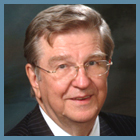
|
Anthony J. Sinskey back to agenda
Faculty Director, Center for Biomedical Innovation; Professor of Microbiology, Department of Biology, MIT
Anthony J. Sinskey, ScD is Professor of Microbiology and Engineering Systems at the Massachusetts Institute of Technology. Professor Sinskey also holds positions as Co-Director of the Malaysia-MIT Biotechnology Partnership Program and as Faculty Director of the MIT Center for Biomedical Innovation (CBI). He conducts interdisciplinary research in metabolic engineering focusing on the fundamental physiology, biochemistry and molecular genetics of important organisms.
Professor Sinskey is well known in the biopharmaceutical industry and has been a Scientific Co-founder of several biotechnology companies, including Genzyme Corporation, Natural Pharmaceuticals, Metabolix, Merrimack Pharmaceuticals, and Tepha. Dr. Sinskey has given more than 300 presentations at US and international scientific meetings and congresses. He has received 31 issues patents, has made more than 30 invention disclosures and has published more than 300 scientific papers in leading peer-reviewed journals for biology, metabolic engineering, and biopolymer engineering.
His current research focuses on the genetics and biochemistry of carbon storage in biological systems including biopolymers and triacylglycerides. Investigations include studies with a variety of feedstocks to fuels, chemicals and biopolymers.
Dr. Sinskey received his undergraduate degree from the University of Illinois at Urbana-Champaign and his ScD in Microbiology and Food Science from the Massachusetts Institute of Technology. His post-doctoral work was done at the Harvard School of Public Health. |
 |
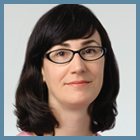
|
Stacy L. Springs back to agenda day 1 | back to agenda day 2
Director, Biomanufacturing Program; Executive Director, Consortium on Adventitious Agent Contamination in Biomanufacturing, Center for Biomedical Innovation, MIT
Dr. Stacy Springs is the Director of the Biomanufacturing Program (BioMAN) and the Executive Director of the MIT Consortium on Adventitious Agent Contamination in Biomanufacturing (CAACB) at the MIT Center for Biomedical Innovation. BioMAN is a collaborative research and educational program in biotherapeutic manufacturing that involves biopharmaceutical manufacturers, vendors, regulators, other government stakeholders and academics. The objective of this program is to develop new knowledge, science, technologies and strategies for advancing the safe manufacture and global delivery of high quality biopharmaceuticals. The CAACB was established to share information around adventitious agent contamination and risk mitigation for the benefit of the biopharmaceutical manufacturing industry and the patients receiving medications produced from cell culture.
Dr. Springs holds a PhD in Chemistry from the University of Texas at Austin and gained postdoctoral training in protein and biophysical chemistry at Princeton University. Prior to joining MIT, Stacy was a Sr. Scientist and Director of Collaborative Projects at Tetralogic Pharmaceuticals, an oncology drug discovery company based in Malvern, PA. |
 |
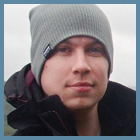
|
Jamie Thurman-Newell view abstract | back to agenda
Principal Investigator – Healthcare Technologies Group, Loughborough University
Jamie Thurman-Newell is a Principle Investigator on a UK EPSRC research project within the Centre of Biological Engineering at Loughborough University. He received a BSc in Chemistry from the University of Greenwich and is submitting a PhD in Biological Engineering as part of the UK EPSRC Centre for Innovative Manufacturing in Regenerative Medicine (University of Loughborough). He has led out come focused projects in partnership with a number of clinical and industrial stakeholders whilst investigating biological variation within blood-based therapy. Jamie’s expertise encompasses understanding sources of variation and statistical rectitude within stem cell therapy (SCT) starting materials. This has been developed in the context of up-scaling clinically based production of SCTs to large volume manufacture. He is currently investigating redistributed manufacturing models for adoption of cell and tissue based therapeutics (CATBTs) with a multidisciplinary team. |
 |
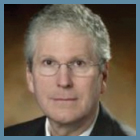
|
Michael Washabaugh view abstract | back to agenda
Senior Director of Research and Development, MedImmune
Michael W. Washabaugh, PhD, is Senior Director of Research & Development at MedImmune, the global biologics research & development arm of AstraZeneca. Michael moved to MedImmune from Merck Research Laboratories in 2010. He is a key leader for therapeutic protein & vaccine development with a broad span of influence & responsibility, especially involving novel (first-in-class) products, and has supported or led the development of numerous launched products. He co-leads EU-IMI & US-DARPA initiatives on developing platforms that are suitable for rapid surge production of vaccines, platforms that allow the rapid identification & production of antibodies capable of neutralizing emerging viruses, development of release assays that do not make use of animals, and development of protocols for fast-track registration of developed products. |
 |

|
David Williams view abstract | back to agenda
Professor of Healthcare Engineering, Loughborough University
David is Professor of Healthcare Engineering at Loughborough University. He has held senior leadership positions in academia and industry, working for much of his career at their interface and in healthcare for the last 15 years. The last decade has focused on leadership of major research and research training initiatives in regenerative medicine (RM) and leading multi-disciplinary health research across the Loughborough campus. His early career was primarily in Cambridge University. Personal research addresses manufacturing and regulatory science of clinician-pulled cell based therapies and opportunities for engineers within defence medicine. |
 |

|
Alison Wilson view abstract | back to agenda
Principal Consultant, CellData Services
Alison is an independent regulatory affairs consultant. Previously regulatory affairs manager for Smith & Nephew Wound Management, she has over 25 years experience of regulatory affairs in medicinal products, human tissue products and medical devices. She is a nominated UK expert for ISO (International Standards Organisation) TC150/WG 11 - Tissue Engineered Medical Products and a member of BSI Technical Panel RGM/1 – Regenerative Medicine.
Alison is a Module Advisor for the TOPRA* MSc in Regulatory Affairs (Pharma) (Module 9 – Biotechnology) and was Module Advisor for the MSc in Medical Technology Regulatory Affairs (Module 6 – Combination Products and Other Technologies) from 2006-2012. She is a member of the Topic Selection Panel for the MHRA Medical Device Technology Forum. She is the technical author for the BSI publication PAS 93: 2011 Characterisation of human cells for clinical application, and is a recognised contributor to the BSI cell therapy documents PAS 83:2012, PAS 84:2012 and PAS 157:2015. Alison has several publications on regulation of ATMPs and human tissues and is a Fellow of TOPRA.
CellData Services provides strategic regulatory and development advice for a range of UK, EU and US clients seeking to develop and commercialize advanced therapy medicinal products (ATMPs), regenerative medicine therapies and drug-device combination products in the EU. Alison has extensive expertise in guiding smaller companies and academic groups through the regulatory complexities of development of novel regenerative medicine products, in particular scientific advice procedures and first in-man clinical trials, and in recognition of this has received the first TOPRA Futures Award for contribution to regulatory science in new technology areas. |
 |
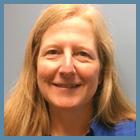
|
Jackie Wolfrum back to agenda
Research Scientist, Research Laboratory of Electronics; Center for Biomedical Innovation, MIT
Dr. Wolfrum is a Research Scientist at MIT’s Center for Biomedical Innovation (CBI). She works with the BioManufacturing (BioMAN) Program to develop their new initiative in the area of cell and gene therapy manufacturing. She also works on development of microbioreactors for the culture of mammalian cells in the laboratory of Professor Rajeev Ram in the Physical Optics and Electronics Group at MIT’s Research Laboratory of Electronics (RLE). She has more than 15 years of experience in research, development, and manufacturing technical support for cGMP cell therapy products and cell-based medical devices in previous positions at W.R.Grace and Genzyme Biosurgery. Dr. Wolfrum received an SB in Chemical Engineering from MIT and a PhD in Biomedical Engineering from RPI. |
 |

|
J. Fraser Wright view abstract | back to agenda
Co-Founder and Chief Technology Officer, Spark Therapeutics
Dr. Fraser Wright has been engaged for more than 20 years in the development of viral vector-based new biologic products in both industry and academic settings. Fraser previously served as the director of the Clinical Vector Core Laboratory at The Children’s Hospital of Philadelphia, a world-class manufacturing facility that has designed, manufactured, characterized and certified recombinant adeno-associated viruses (AAV) and lentiviruses (rLenti) for human gene therapy trials. He also was a professor of pathology and laboratory medicine at the University of Pennsylvania. Fraser has led efforts in basic research, process and analytical methods development and GMP manufacturing and quality systems supporting translational research. He has overseen investigational product chemistry, manufacturing and controls for gene therapy vectors administered to more than 150 human subjects in 12 clinical studies. With basic training in biochemistry, immunology and virology, his primary research interests focus on the development and clinical translation of gene therapy vectors with the goal of achieving effective new treatments for serious human diseases. He previously served as director of development and clinical manufacturing at Avigen, Inc. He received his BS and PhD in biochemistry from the University of Toronto. |
|
|
|